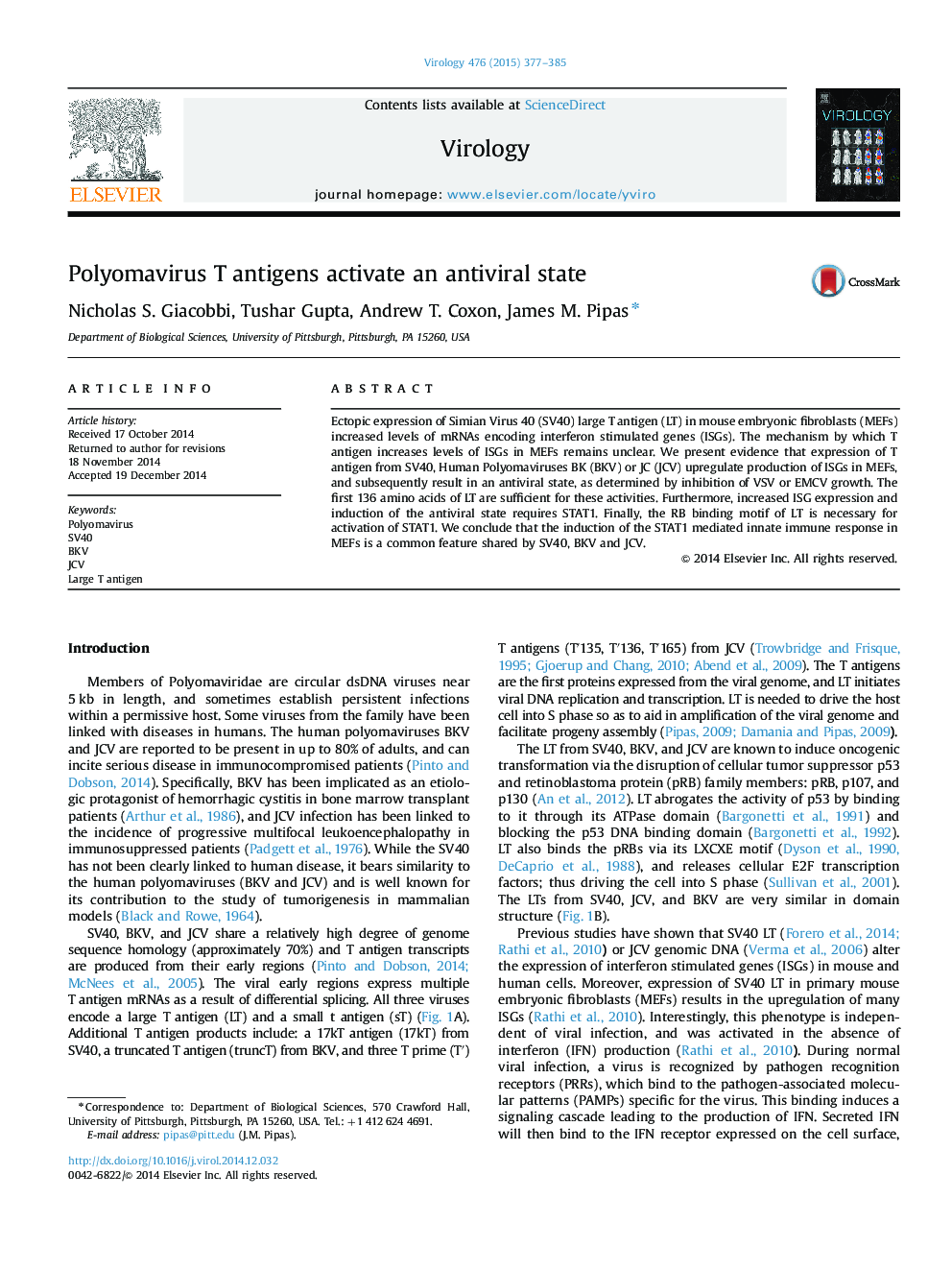| Article ID | Journal | Published Year | Pages | File Type |
|---|---|---|---|---|
| 6139623 | Virology | 2015 | 9 Pages |
Abstract
Ectopic expression of Simian Virus 40 (SV40) large T antigen (LT) in mouse embryonic fibroblasts (MEFs) increased levels of mRNAs encoding interferon stimulated genes (ISGs). The mechanism by which T antigen increases levels of ISGs in MEFs remains unclear. We present evidence that expression of T antigen from SV40, Human Polyomaviruses BK (BKV) or JC (JCV) upregulate production of ISGs in MEFs, and subsequently result in an antiviral state, as determined by inhibition of VSV or EMCV growth. The first 136 amino acids of LT are sufficient for these activities. Furthermore, increased ISG expression and induction of the antiviral state requires STAT1. Finally, the RB binding motif of LT is necessary for activation of STAT1. We conclude that the induction of the STAT1 mediated innate immune response in MEFs is a common feature shared by SV40, BKV and JCV.
Related Topics
Life Sciences
Immunology and Microbiology
Virology
Authors
Nicholas S. Giacobbi, Tushar Gupta, Andrew T. Coxon, James M. Pipas,
